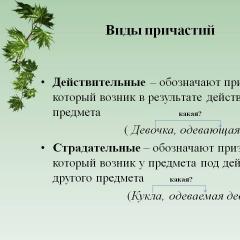5 cases when the comma before the "how" is not needed
Not only false words, but also a cunning union “how”. Many people know that the comma in constructions with the union "how" seems to be put, but not always. And it’s hard to say when this “not always” happens. We will tell you at least five cases when it is better to abstain from the comma before the "how".
Right: Aristotle went down in history as a student of Plato and teacher of Alexander the Great.
Perhaps the simplest rule, but at the same time the most common in terms of the number of errors. You do not need to put a comma if the conjunction "how" means "as". You probably remember that we separate the comparative turnovers with commas. But distinguishing comparative turnover from the meaning of “quality” can be difficult. "Aristotle went down in history as a student of Plato and teacher of Alexander the Great." Entered in as whom? - Disciple of Plato and teacher of Macedon. There is only one recipe: to carefully read the sentence and try to understand whether there is a comparison here or not.

Right: Behaving like a girl!
The most difficult thing is when the turnover with the union "how" acts as a circumstance of the mode of action. That is, we can easily ask a question to the circumstance and mentally try to replace the turnover with an adverb or noun in the instrumental case (by whom? With what?). It is even more difficult to distinguish comparison from this "circumstance of the course of action." A popular example cited by Rosenthal and the authors of other reference books: "The path twisted like a snake." How did the path meander? - The path twisted like a snake. Or "at school we studied Chinese as an elective." Studied how? - Optional. Well, in our example: how are you behaving? - Girlish.

Right: Before each parent-teacher meeting, Petya walks on pins and needles for a week.
Also, a comma is not put if the comparative turnover is part of the predicate or is closely related to it in meaning. Literally speaking, if you remove this phrase, the sentence loses its meaning. And it becomes unclear what I wanted to say
This also includes comparative turns, which have become stable expressions over time: understand as a hint, pale as death, take it for granted, pouring like a bucket, life flowed like clockwork, feel at home, hungry like a dog, and so on. Of course, it is impossible to know all phraseological expressions, so it is not a sin to turn to a dictionary or Google to assess the degree of their stability.
![]()
Right: Harry Potter books are loved by both adults and children.
A comma is not needed before "how" and in some compound conjunctions at the beginning of a sentence ("since ...", "since ...", "as ..."), and with a double conjunction "how ..." so ... ". For example: "While the children are resting, the teachers continue to work", "Vasya successfully passed the exam in both physics and chemistry", "Outstanding people such as Steve Jobs and Elon Musk also once went to school." ...
In addition, you should not give in to persuasion with commas in the combinations “as if nothing had happened”, “almost like”, “sort of like”, “as possible”, “exactly like” and just in the presence of a negative particle: "She reasoned just like an adult", "Sasha did as many tasks as possible", "They are not like people."

Right: life is like a miracle
In this example, the comma is definitely not worth it. Why, you ask? Because there is no place in front of the subject and the predicate, only a dash (or nothing at all) is allowed. “Life is like a miracle”, “School is like a test”, “Love is like a flame” and other no less beautiful metaphors.


